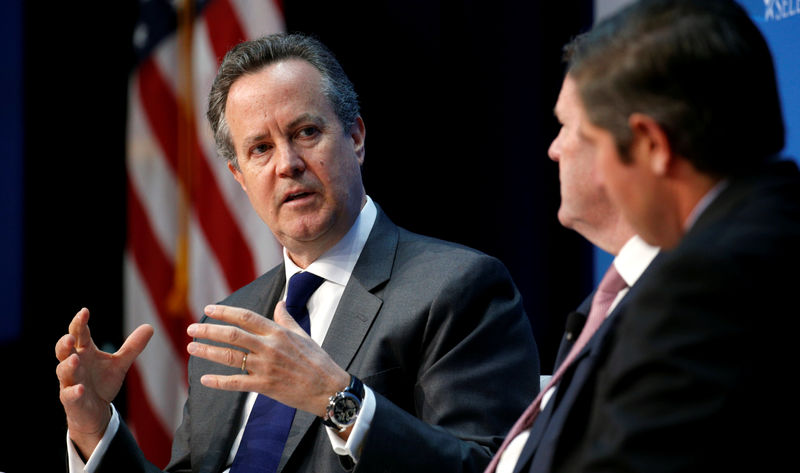By Marc Jones
LONDON (Reuters) - The world's biggest credit ratings agency S&P Global expects to move around 30-40 of its analysts out of London as a result of Brexit, the firm's president and chief executive has told Reuters.
S&P employs around 1,500 analysts globally but needs to meet demands from European Union markets regulator, ESMA, that rating firms have "sufficient" numbers of senior staff in the bloc when Britain officially leaves next year.
It already has sizeable offices in Frankfurt, Paris, Madrid and Milan and plans to open a new office in Dublin which staff could also move to, S&P's head Douglas L Peterson said during a trip to London.
"It won't be many, (staff that have to move)," he said. "It will be in the tens, maybe 30 to 40".
He added it could include a small number sovereign analysts though the larger share was likely to be in the firm's structured finance division that made 10 percent of rating revenues last year.
A company spokesman couldn't immediately specify how many analysts it employs in London.
But with its other EU offices in major European cities Peterson added that he did not expect to have difficulty convincing staff to move. "We have already had some people put their hand up," he said.
The departures from London will barely put a dent in S&P's overall presence in Europe's main financial centre. But Peterson warned Britain needed to provide clarity on key post-Brexit regulatory arrangements to ensure there isn't more upheaval.
Britain and the EU have agreed in principle on a transition period lasting from Brexit Day next March to the end of 2020, but it has yet to be formally ratified.
The Financial Conduct Authority will take over supervision of ratings agencies in Britain, but ESMA was unable to say if it will continue to supervise UK-based ratings agencies during the transition period.
Without a bespoke trade deal after transition, ratings agencies in Britain would have to obtain "endorsement" from ESMA to continue serving EU customers. However, the sheer size of agencies like S&P could force them to base such services in the bloc.

S&P has an EU market share of 46 percent, the latest ESMA data shows, well ahead of nearest rival Moody's on 31 percent.